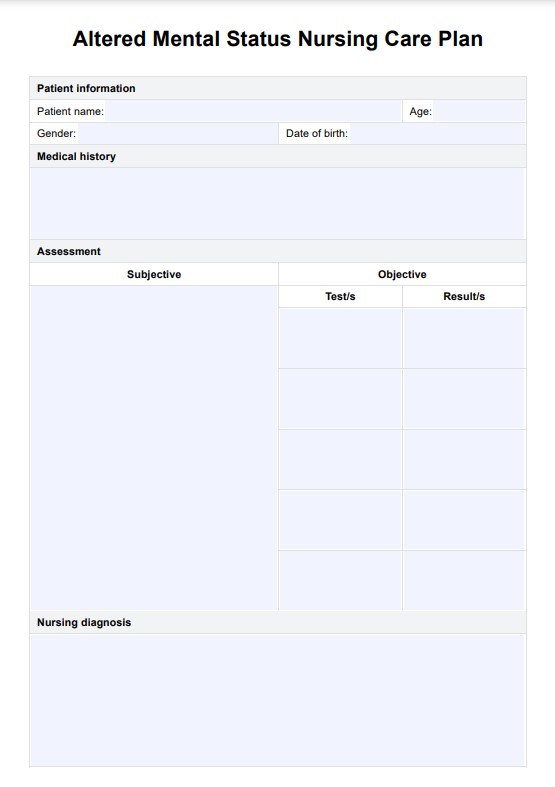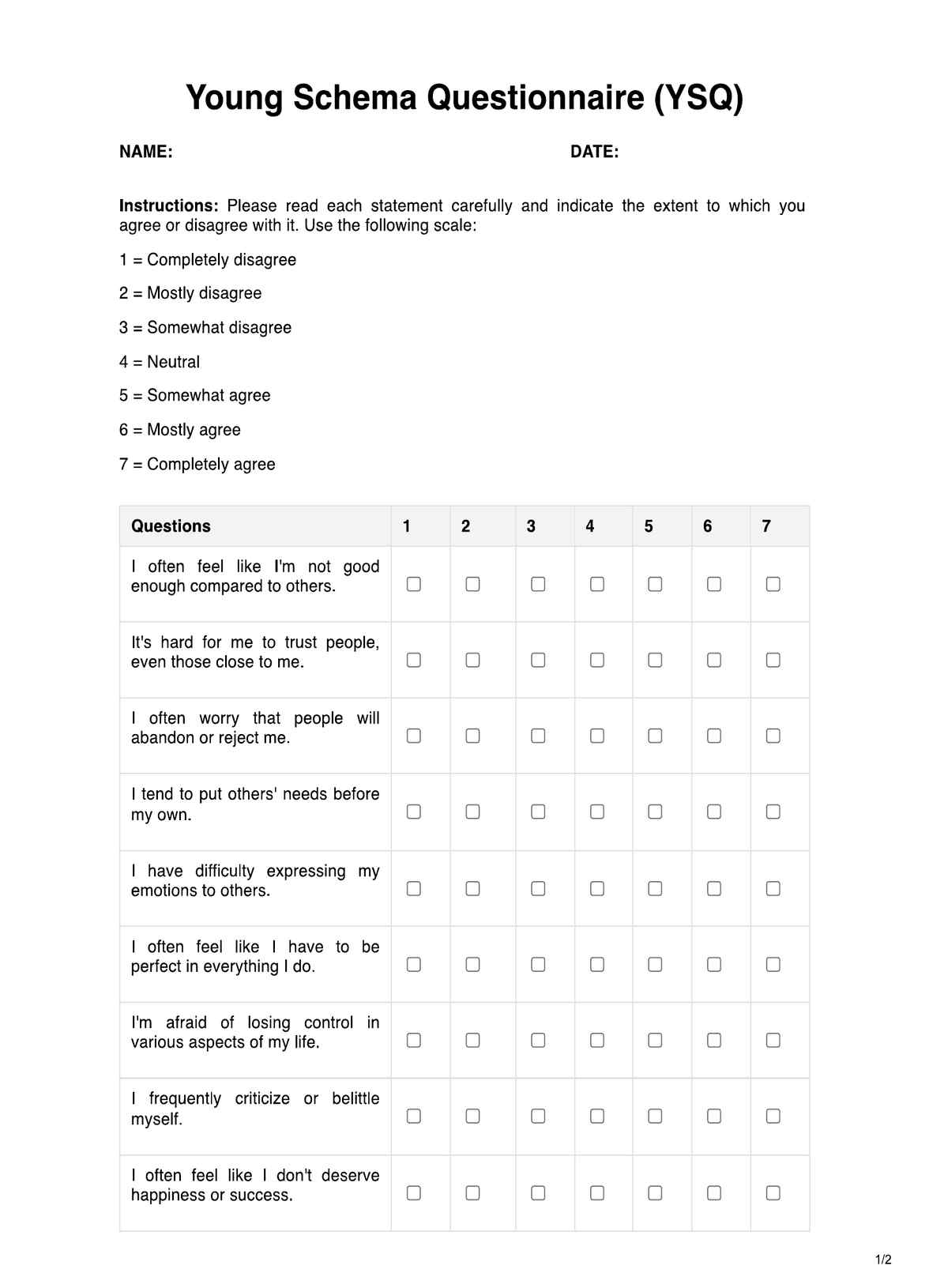Altered mental status (AMS) and confusion are related but not identical concepts. AMS is a broad term that encompasses various changes in cognitive function, including confusion, disorientation, and altered levels of consciousness. Confusion specifically refers to a state where an individual experiences disruptions in memory, attention, and awareness, often leading to difficulty understanding their environment. While confusion can be a symptom of AMS, altered mental status includes other conditions such as delirium and psychosis, making it a more encompassing term.

Altered Mental Status Nursing Care Plan
Explore our Altered Mental Status Nursing Care Plan Template. Download our free PDF for comprehensive, effective mental health care.
Altered Mental Status Nursing Care Plan Template
Commonly asked questions
When approaching a patient with altered mental status, it is essential to ensure the patient's safety first. Start by assessing the patient's level of consciousness and responsiveness while maintaining a calm and supportive demeanor. Conduct a thorough physical examination and consider performing diagnostic tests to identify potential underlying causes. It is crucial to remain patient and empathetic throughout the interaction, as this can help reduce anxiety for both the patient and healthcare providers.
Expected findings for altered mental status can vary widely depending on the underlying cause but generally include changes in cognition, behavior, and awareness. Symptoms may manifest as disorientation to time, place, or person, impaired attention, memory deficits, hallucinations, or delusions. Patients might exhibit agitation or lethargy, and their ability to communicate effectively may be compromised. In some cases, physical signs such as abnormal vital signs or neurological deficits may also be present.
EHR and practice management software
Get started for free
*No credit card required
Free
$0/usd
Unlimited clients
Telehealth
1GB of storage
Client portal text
Automated billing and online payments











